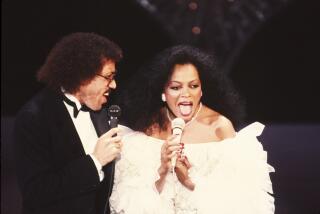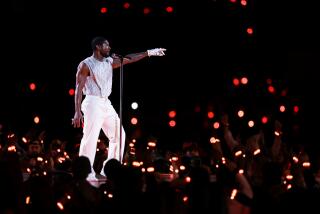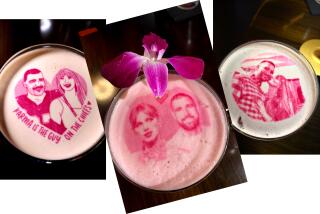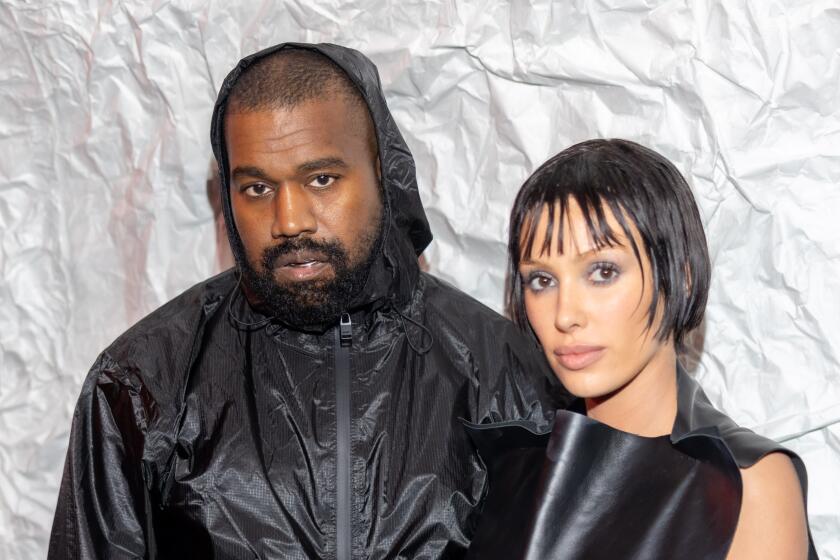Lionel Richie reflects on his new Vegas gig as a sure bet that he’s happy to play
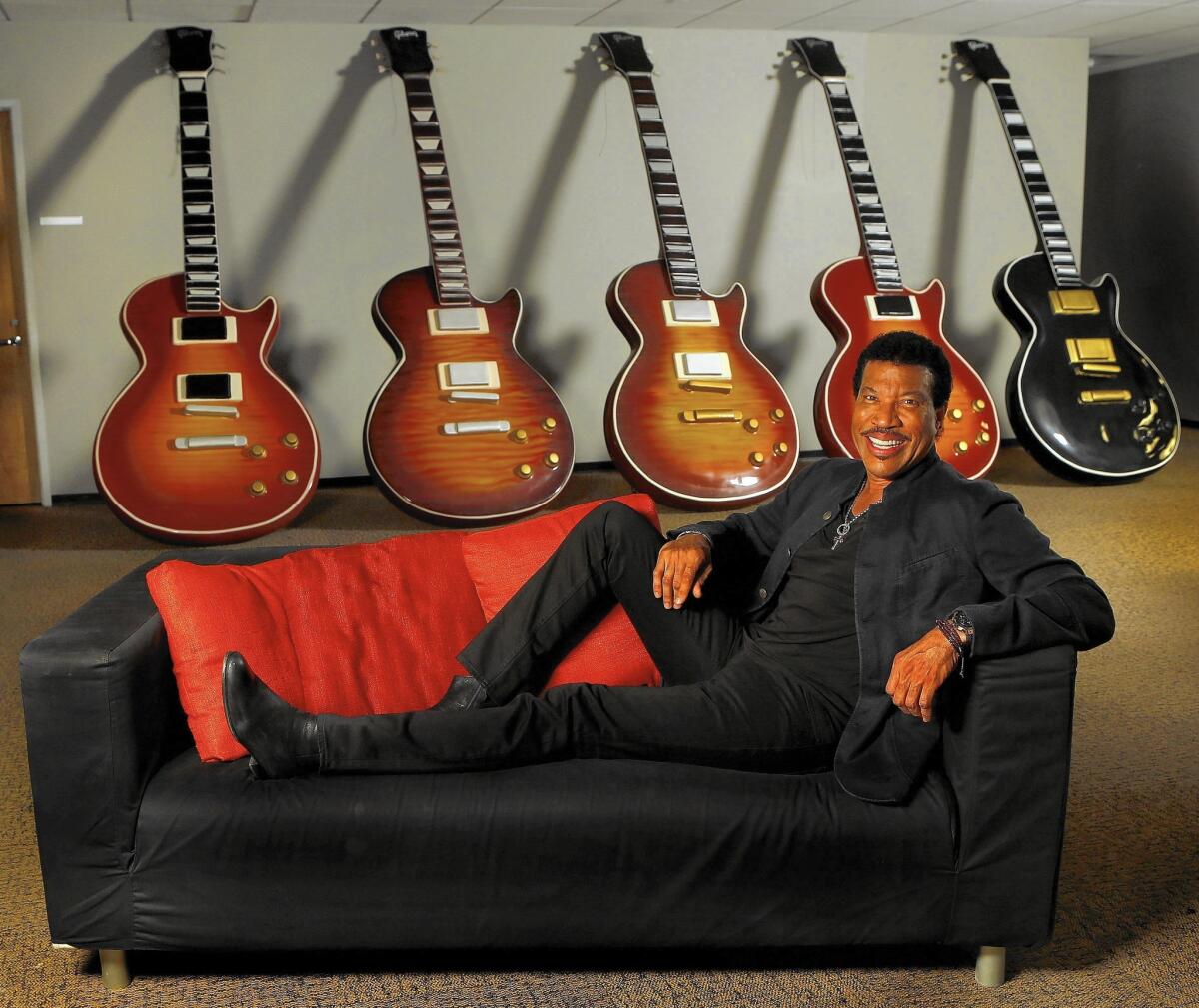
Lionel Richie remembers the first concert he played as a solo artist after he left the Commodores. The show was in Las Vegas in the early 1980s, and because “the audience wasn’t sure who I was going to be,” as he recalled recently, people turned up dressed for a variety of occasions.
“Some came in suits and ties, some in jeans,” he said. “And then there was the guy in the corner with the pink and blue Mohawk and the piercings.”
Despite those differences, at least one thing united the folks in the crowd: None of them sang along when Richie did “All Night Long (All Night).”
“It had literally just been released, so they didn’t know it yet!” he explained with a laugh.
His fans will certainly know the tune, which went on to top Billboard’s Hot 100, when Richie returns to Las Vegas this week in a new residency at Planet Hollywood. Set to open Wednesday night, the show — with wide-ranging hits from throughout his four-decade career, including “Hello,” “Stuck on You” and “Dancing on the Ceiling” — puts Richie, 66, in the company of other veteran pop stars who’ve taken to Las Vegas of late. Down the strip at Caesars Palace, for instance, you can see Rod Stewart or Celine Dion, depending on the night.
But if Richie’s latest gig reflects a trend, it also stands apart in that it comes amid a round of prestigious industry honors not typically associated with Sin City. In February, Richie was named MusiCares Person of the Year, a title previously bestowed on Bob Dylan and Barbra Streisand, and feted at an all-star pre-Grammys gala, where he spoke candidly about his experience as a black man battling small minds to make music that pulls equally from pop, soul, country and funk.
And in June he’ll receive the Johnny Mercer Award from the Songwriters Hall of Fame, a prize the hall says is meant to recognize a songwriter whose work “upholds the gold standard” set by the author of “Trav’lin’ Light” and “Fools Rush In.”
Can that high-minded purpose survive the demands of a glitzy Vegas revue? Richie, who’s said to have sold more than 100 million albums, thinks so.
“I’m dead serious about this show,” he said one afternoon before a rehearsal in Beverly Hills. Dressed all in black — jacket, T-shirt, jeans, boots — he wore a silver necklace and a neatly trimmed version of the mustache that helped make him an icon in the ‘80s.
“When I first went to Vegas, serious people were there: Frank Sinatra, Dean Martin, Sammy Davis Jr. That’s some serious action!” He pounded a table for emphasis. “Vegas means you’ve passed the popular test. And there’s a word that goes with that: respect.”
Revitalized scene
The idea of setting up shop on the Strip came to Richie, he said, after his friend Steve Wynn and others revitalized the entertainment scene there around 2010 by booking dance-music artists such as Tiësto and David Guetta, whose success in turn attracted the likes of Britney Spears and Jennifer Lopez.
A fallow period had set in after the Rat Pack era, the singer acknowledged, but the arrival of the DJs — and their young, diverse fan base — made him think there was room in Las Vegas for a show like his: filled mostly with old songs, of course, yet spirited, eclectic, defined by audience participation. (Think of him as the guy who made Bruno Mars possible.)
“My 21-year-old son, I said to him, ‘Miles, what do you think about me playing Vegas?’” recounted Richie, whose other children from his two marriages include Nicole Richie, the reality television star. “He said, ‘Oh, my God, Dad, that’d be the coolest thing in the world!’”
Not unlike Las Vegas itself, a conversation with Richie can feel like a collection of distractions. At one point in our talk, he went into a lengthy digression about why Michael Jackson, with whom he wrote “We Are the World,” spoke in such a high voice. Turns out it’s good for your vocal cords, Richie said, which Jackson took to an extreme to protect his most valuable asset.
“See, my voice is completely relaxed right now,” he added, nailing Jackson’s distinctive tone. “But I just couldn’t walk around like this, going, ‘Hi, how are you?’” (Richie also does a fine impersonation of Motown Records boss Berry Gordy.)
And when I asked him about playing Glastonbury, the venerable English music festival where he performed last year for an estimated 200,000 people, Richie leaped out of his chair and reenacted some of his favorite bits. Over the course of an hour, the man asked “You follow me?” probably two dozen times.
Yet he was clear about the connection he wants to make with his audience in Las Vegas. No, he admitted, Planet Hollywood is perhaps not the place to talk about living through segregation in his native Tuskegee, Ala., as he discussed in his eloquent MusiCares speech.
But the power of his music — which in its own way has always argued for breaking down barriers — is that he doesn’t have to talk about it, he insisted. “Those people that are going to be crying with me through ‘Three Times a Lady,’ they were there. I don’t have to say, ‘Hey, old guy, you remember the time we got shut out in Alabama?’ Or maybe you weren’t there during the civil rights movement, but your father was. So now you’re sitting there listening to a song that reminds you of a story he told you about what happened.”
The individualized way his songs resonate with listeners — black, white, rural, urban — is also why he doesn’t fear starting up a new production that could feel like an endless loop.
“People say to me, ‘Lionel, aren’t you going to be bored?’ It’s the same-ass show every night! But every time I look out into an audience, I see a different show I could not have scripted.”
He remembers what he finds too. “The girls from the sorority house at LSU dressed up in Afros and mustaches. The guy in the front row … clearly does not want to be there. The couple making love to each other, no kidding, smashed up against the stage, her eyes rolling back in her head. I’m saying, ‘Go for it, brother. Happy to help.’
“You follow me?”
More to Read
The biggest entertainment stories
Get our big stories about Hollywood, film, television, music, arts, culture and more right in your inbox as soon as they publish.
You may occasionally receive promotional content from the Los Angeles Times.
